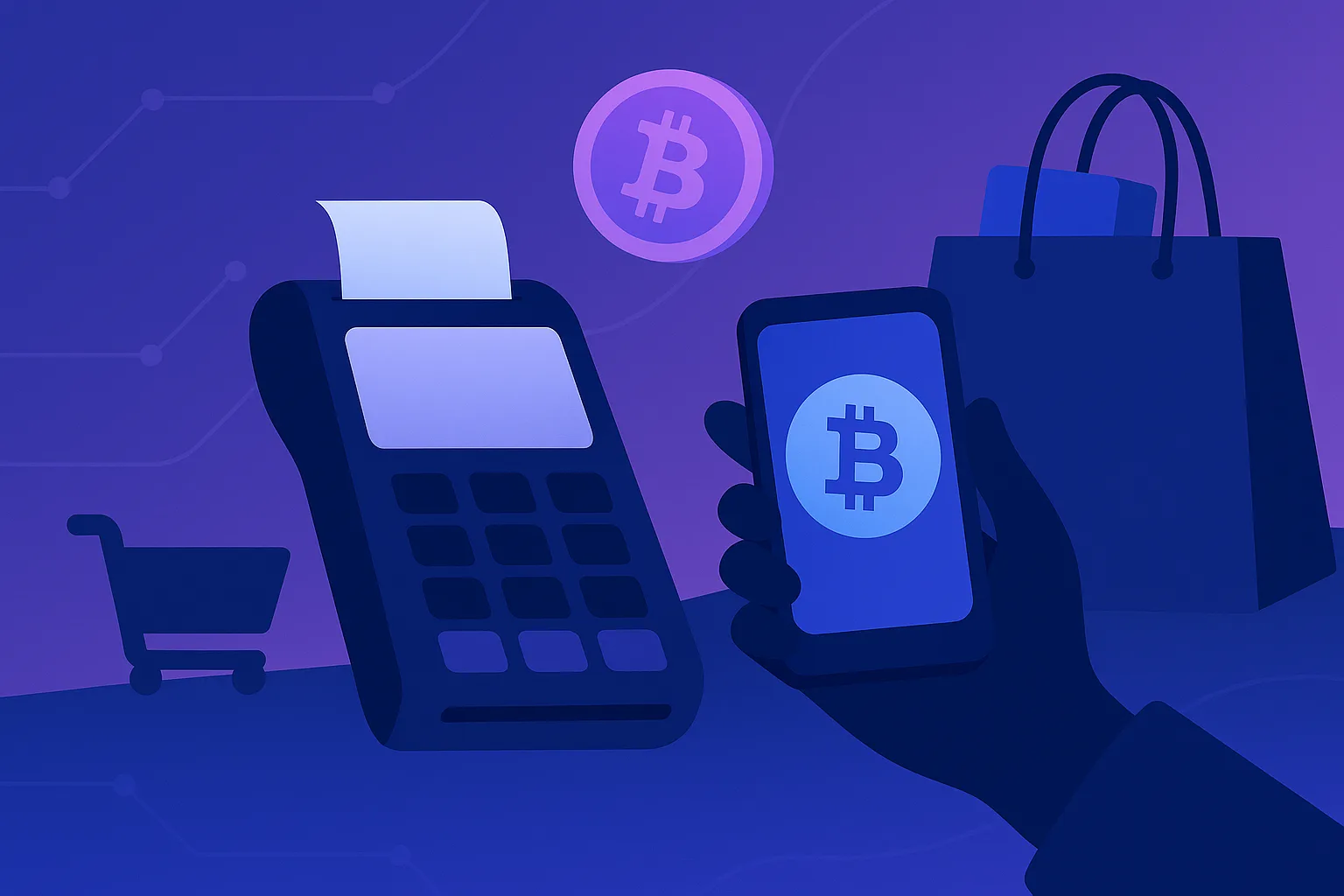By Shane Rodgers
Retail Payments at a Turning Point
For decades, credit cards have dominated checkout. More recently, Buy Now, Pay Later (BNPL) has become popular, especially with younger shoppers. Now, a third option is taking hold: cryptocurrency.
What started as an investment vehicle is rapidly becoming a practical way to pay. Whether it’s luxury retailers courting high-spending customers or everyday merchants seeking faster cash flow, crypto payments are starting to fit naturally into the retail mix.
Why Gen Z Is Leading the Charge
Crypto use in the U.S. is already widespread, with tens of millions of Americans holding digital assets. Surveys consistently show that younger consumers, particularly Gen Z, want the ability to spend their crypto, not just trade it.
This generation is both digitally native and skeptical of legacy banking. They also see crypto as part of their lifestyle. Studies show that Gen Z crypto users are more likely to make discretionary purchases, travel, entertainment, fashion, because spending digital assets feels less like parting with wages and more like unlocking stored value.
Globally, retailers are catching on. Industry forecasts suggest that within the next two years, most merchants will integrate some form of crypto or stablecoin acceptance to stay competitive.
Crypto’s Edge Over Credit Cards and BNPL

Traditional payments come at a cost. Credit card processing averages 3–4% per transaction, and can be higher in certain sectors. Settlements take days, and merchants are still exposed to chargebacks and fraud. BNPL offers convenience for shoppers, but for merchants it often means delayed payouts and additional service fees.
By contrast, crypto payments can be settled into local currency nearly instantly. That means faster access to funds, lower transaction costs, and fewer intermediaries. Importantly, merchants don’t need to handle crypto volatility themselves. Platforms like PDX Beam convert assets at the point of sale, so retailers receive cash while customers pay with digital assets.
This combination of blockchain transparency and instant fiat conversion makes crypto especially appealing for high-value purchases, where fraud risks and payment delays can significantly impact the bottom line.
From Luxury Goods to Everyday Purchases
Early adoption has been strongest among luxury brands and retailers catering to global shoppers. But the trend is broadening quickly. Restaurants, e-commerce shops, and even service providers are starting to enable crypto payments.
According to CoinLaw (2025), more than 32,000 online merchants now accept digital assets, up nearly 40% from the year before. Fortune 500 companies are also piloting crypto acceptance, particularly for international transactions where speed and cost matter most.
PDX Beam, for example, is being rolled out across a wide range of industries—from diamond retailers to mortgage providers, as well as more mainstream outlets like tattoo studios and independent retailers. This diversity underscores that crypto is no longer niche.
A Shift That’s Here to Stay

What’s happening in retail payments mirrors a larger digital transformation. Just as credit cards once displaced cash, crypto is now emerging as a credible alternative that aligns with the values and habits of the next generation.
For merchants, the benefits are clear: reduced costs, faster settlement, and stronger fraud protection. For consumers, crypto offers flexibility and the ability to use digital wealth in everyday life.
Retail checkout is being reimagined. Crypto payments are not just a passing experiment. They’re becoming a permanent fixture in how we buy, sell, and interact with money.
About the author
Shane Rodgers, a former investment banker, is CEO of PDX Global. The company’s PDX Beam crypto-to-fiat payments gateway is currently in beta.
















